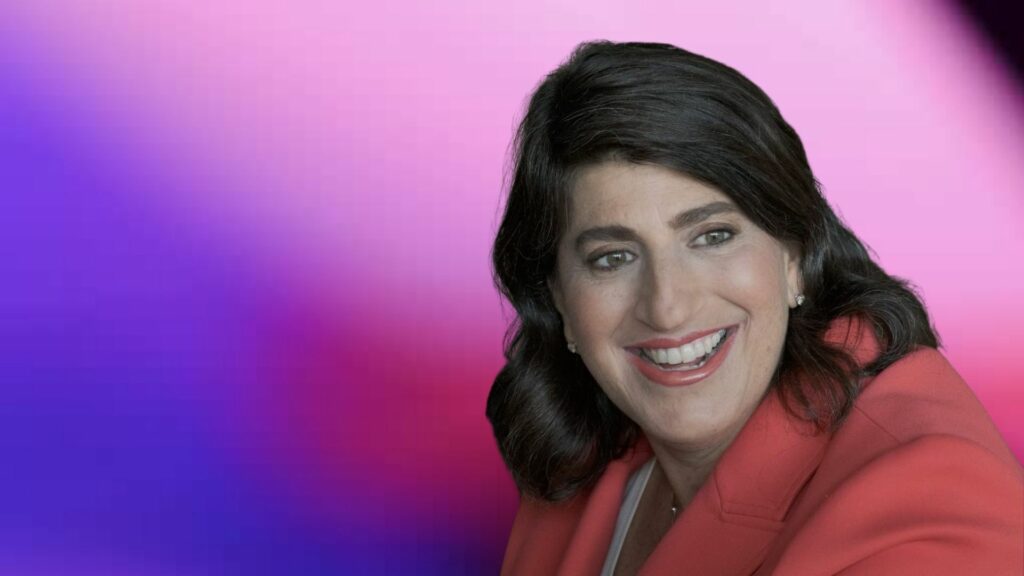Should I get an Executive MBA?

Should I get an Executive MBA might be a question you’ve asked yourself. Created almost 80 years ago at the University of Chicago’s Booth School of Business, an Executive MBA, or EMBA, is an MBA that is geared toward seasoned professionals. It’s unique in that it offers a rigorous business curriculum, delivered in a more flexibly-designed form; at the end of the day, you’ll still walk away with a Masters of Business Administration from the institution you attend, with the skills and development that make you a more effective executive. Like standard, full-time programs, admissions can be competitive, especially at top (or selective) business schools, where there are a lot of people competing for a limited number of seats. Because EMBA students are mostly experienced executives, managers, entrepreneurs and other business leaders who want to hold a full-time job while they earn their degree, the programs look to cater to their busy lives and experiences throughout the entire process. Let’s get into the different aspects of the EMBA, and soon we’ll talk about choosing the right program for you.
Flexible Program Structure
The main difference between the EMBA and a regular MBA is the structure and how they’re delivered. The curriculum will provide a full business administration education, taking into account the fact that the students have been in the workplace for a number of years; discussing basic management principles may be redundant, so some courses may be adapted or accelerated; typically, programs can be 2-3 years in length. When looking at programs and considering the EMBA, think about the time you can devote to your studies and consider your own professional and personal goals and what kind of experience you’ve had so far in the workplace. If you’re looking to propel forward in your current industry, or meeting certain requirements to move ahead in your current firm, the Executive MBA is likely a good move for you (and your current employer may even sponsor you to pursue the degree, more on funding the EMBA in this article from the Financial Times). Look a bit deeper to know what each program’s students have done before and after the degree as you decide where to apply.
Because of its focus on experienced professionals, the EMBA is usually designed to work around a busy workweek. Programs might hold classes in the evenings, on weekends, or entirely online, with in-person meetups or immersions for students to network and get to know each other (a growing number of EMBAs blend online coursework with on-campus sessions, enhancing the time they spend together in the classroom). The “right” structure will depend on every applicant’s own schedule and goals, and each school will have a different approach to community / network-building for their students. If you do obtain employer sponsorship, the structure of the program may be part of the “deal” – some employers will hold your position, allowing you to focus 100% of your time and efforts on the degree, while others may require you to stay and work full-time, and attend class online or during evenings or weekends (some will leave early or take the entire day off on [some] Fridays, to allow for travel or actual classes).
Costs and Benefits
According to the Executive MBA Council, or EMBAC, a typical MBA program can cost an average of $85,256 (program costs can be as high as $200,000), so securing company sponsorship can be an excellent way to make it happen. But even if you don’t get your company to foot the bill, the payoff of the degree is rather quick, given the level at which you’re entering the program (EMBAC says typical salary upon entering an EMBA program is $205,008; upon exit that increases 13.5% to $232,663). Based on exit surveys conducted by EMBAC, satisfaction rates for the EMBA are rather high 4.2/5, with people benefiting from the “valuable network of peers, fellow business leaders from diverse industries, development of global business mindset [and] career growth, often accompanied by increased compensation and greater leadership responsibilities.” Additionally, the many intangible benefits and support and development you’ll receive during and after completing your coursework ensure great returns for years to come.
Typical Executive MBA Student
The typical Executive MBA student is someone with roughly 10-15 years of working experience, and at least a few years of managerial experience. It depends, but EMBAC says that the typical student profile has nine years of management experience. The expectation is that you’ve been in the workforce for a number of years, and can speak to navigating managerial challenges and offer your own perspective to discussions and case studies. Candidates will age in range but the average age of an EMBA cohort will be slightly older than a regular MBA cohort. Here’s a look at the typical EMBA student profile:

As a currently employed, experienced manager, you’re likely working a full-time job, and adding your coursework on top of an already demanding schedule, so it helps that you will complete the EMBA coursework with the same group of people, in your cohort. You’ll grow very close as you discuss the nuances of business challenges and opportunities, and they’ll become your support system and an extremely valuable part of your network moving forward.
Convenient Applications and the Executive Assessment
As we’ve discussed, and most recently, with NYU Stern now accepting the EA for its Full-Time MBA, the Executive Assessment (EA) is often accepted instead of the GMAT (if there are test requirements, at all). The Executive Assessment is an exam that caters to busy, seasoned professionals who have been out of school for a while, and might not have the time to dedicate to proper GMAT/GRE prep (and let’s face it: once you’re a few years out of school, getting yourself back into study mode via algebra and comprehension questions is a unique form of torture). We get into the Executive Assessment and what to expect with Laura Gallardo, below!
On taking the Executive Assessment
Laura Gallardo is a current student pursuing her MBA at the University of Texas McCombs School of Business (watch her as the first person to host twice in our #MBAchicTakeover series).
When did you take the Executive Assessment (and when did you find out about it)?
I took the Executive Assessment in April, one month before my application’s deadline (final round applicant over here!). I found out that my school, The University of Texas at Austin McCombs School of Business, was accepting the EA for its Professional MBA program during a series of admissions webinars it hosted leading up to the final deadline. Professional MBA applicants with more than eight years of professional experience qualify for the EA. I met that checkbox and I jumped on it!
How long did you study for it?
I applied my studying for the GMAT to the EA. The EA tests most of the same concepts as the GMAT, in similar format, but it’s abbreviated, so I didn’t have to do any separate studying. The EA contains the verbal, quant, and integrated reasoning sections of the GMAT. They’re also timed, but if you finish early, you may go back and check or change your answers. And, bonus-–there’s no essay! I spent four months self-studying for the GMAT, so I used all those skills for the EA. I took the EA to see whether I could earn a more favorable score than the GMAT and I did.
Did you use any test prep classes or books?
I self-studied using the GMAT Official Guide (the thick book with the problems) and the Manhattan Prep book set, but otherwise I self-studied. Looking back, investing in a course would have been the best idea, and would have saved me a lot of tears, stress, and doubt about my GMAT studying.
What advice do you have for students prepping for the EA / business school apps in general?
So much knowledge to share! A growing number of schools are accepting the EA, and some are even waiving the GMAT if certain criteria are met, such as a high undergrad GPA, or certain years of professional experience – so do your homework! Also, very, very important – meet with your program’s admissions counselor early on in your process. They know the program better than anyone else and can offer a personalized assessment of your career and strengths, and suggest which portions of the application you may need to do a little extra work to up your chances of getting accepted.
Plus, many programs will consider your interest in their program when making their admissions decisions. If you show initiative to learn about their school, you may be more likely to be accepted than someone, for example, who applied with no prior connection. So, set up an appointment with the admissions counselor, meet with student ambassadors, attend school networking events, and ask to sit in a class. I cannot emphasize how helpful it is to attend a class – it allows you to experience the culture of program and the pace of the courses, and as a result, help you determine whether the program is the right fit for you. That was a game changer for me. Be diligent and proactive – it’ll all work to your advantage, I promise!
Finally, if you’re thinking about pursuing an MBA, but are still on the fence about it – JUST DO IT! Invest in yourself and your professional development – you won’t believe how much they go hand-in-hand. I’ve been in school for a few months, and I’ve already experienced a complete mind shift about my career, goals, and life in general.
And here’s a link to MBA programs accepting the EA: https://www.gmac.com/executive-assessment/about/accepting-schools
Seeing the EMBA as a tool for your career
Based on your background and industry and experience, getting your Executive MBA could make a huge difference in your salary, your role at your company and your trajectory moving forward. In pursuing an EMBA, you might be looking to advance in your company or industry, but it’s not impossible to leverage the degree to make a jump similar to one a student pursuing a full-time MBA program might. As we always say, it’s important to know your “why” before pursuing either of these degrees, and how it will serve as a tool for you; even if you are just “ticking a box” required to shift into the business side of your industry, or making suer you have the credentials required for the promotion, there’s so much more that comes with it than those three letters. Even if your employer is sponsoring your degree, it’s an investment in your education and your future.
Whatever your goals and next steps, be sure to walk in with an open mind and readiness to connect – your teammates and fellow classmates will be extremely helpful, in sharing class notes and studying / prepping for presentations and in keeping each other motivated. As mentioned before, you’re going to be working together, and leaning on each other pretty heavily, but your classmates will also become some of your strongest business contacts from this point on. Make sure you’re connecting beyond your assignments and jobs and learn about their interests and lives and consider how you might collaborate in the future. Take advantage of the fact that you’re all in this less formal environment with your future colleagues and cofounders, and build lasting relationships.
Should I do it?
All in all, the Executive MBA is certainly worth a look if you’re a little further on in your career, and looking to continue your education while investing in your own personal and professional development. I’d certainly look to secure employer sponsorship, as the investment in your education benefits your company in real-time; if for some reason your employer cannot provide tuition assistance, and assuming you fit the standard EMBA profile, the payoff for the degree should be relatively quick. If you’re on the fence about pursuing the degree, speak to people in your industry who have their EMBAs, and to graduates of your target programs to understanding their experiences. Also, attending The MBA Tour and speaking with school representatives about their MBA offerings is a great way to learn more in a low-pressure environment, And come join our newly launched group chats to find people people who were once in your shoes. Good luck!
What programs are you looking at? What do you want to know about EMBAs?
Next, let’s talk about finding the best program for you. Comment below or reach out on social!
Helpful Executive MBA Resources
- Executive MBA Council (EMBAC)
- 2019 FT Executive MBA rankings were released this weekend, dig into the methodology behind them!
- 2019 U.S. News Executive MBA rankings
- Executive Assessment (GMAC)
- Attend The MBA Tour in your city to speak with school representatives
- How to fund an Executive MBA (Financial Times)
- Creating an Executive MBA just for women (MBAchic)
Should I get an Executive MBA?

What questions do you have about bschool, careers, style and more. Leave a comment or reach out! Be sure to subscribe to #TheWeeklyChic and get involved!









Responses